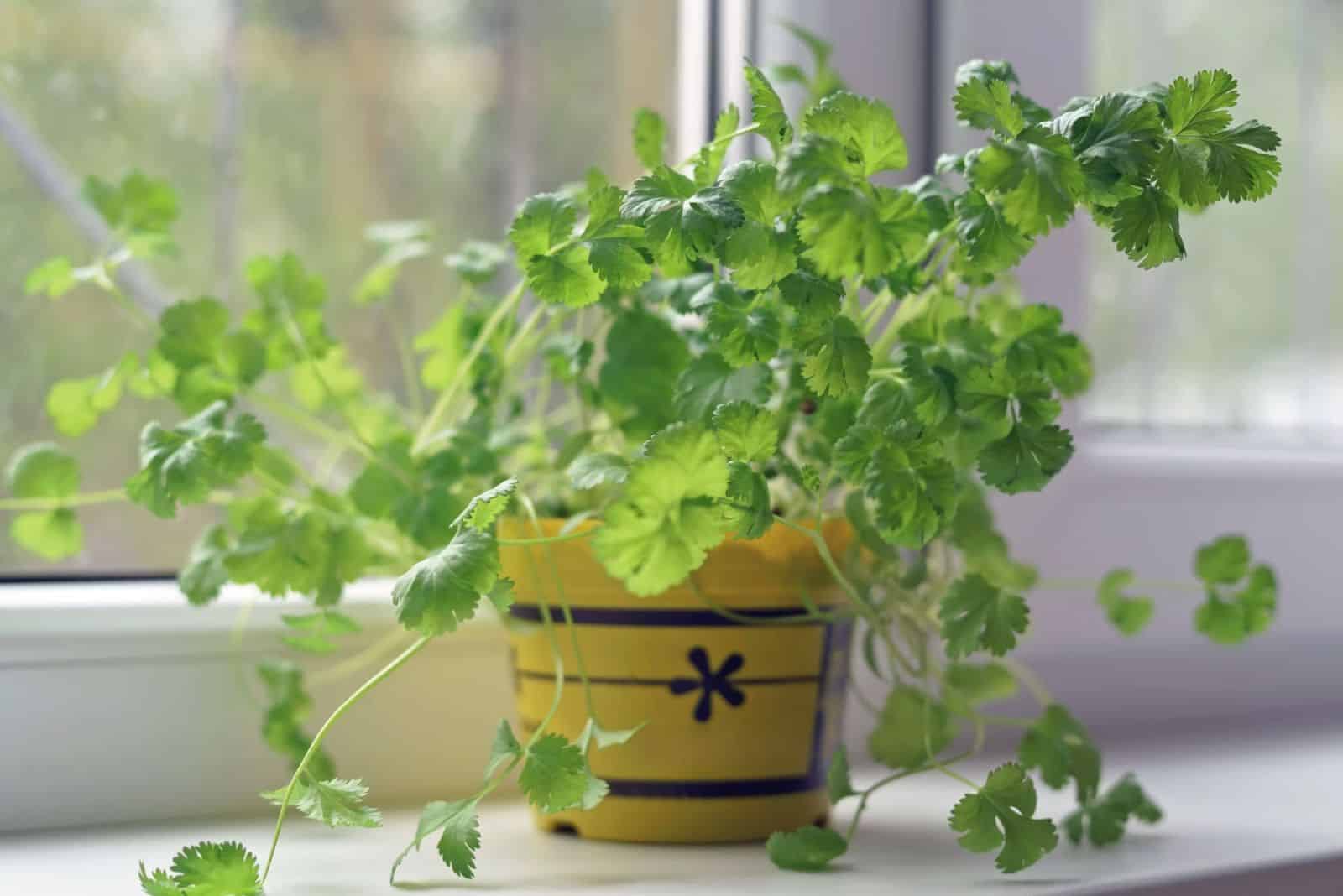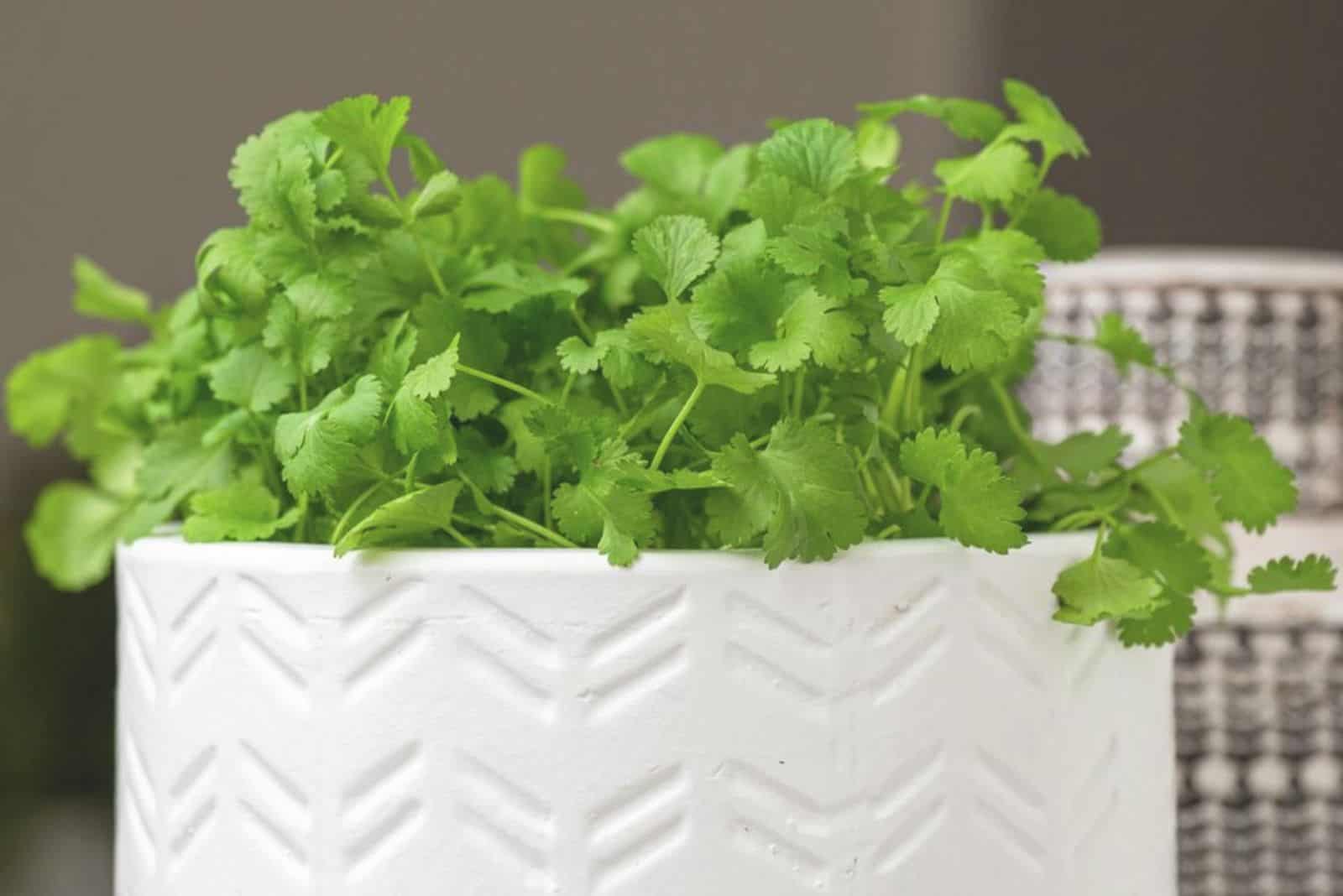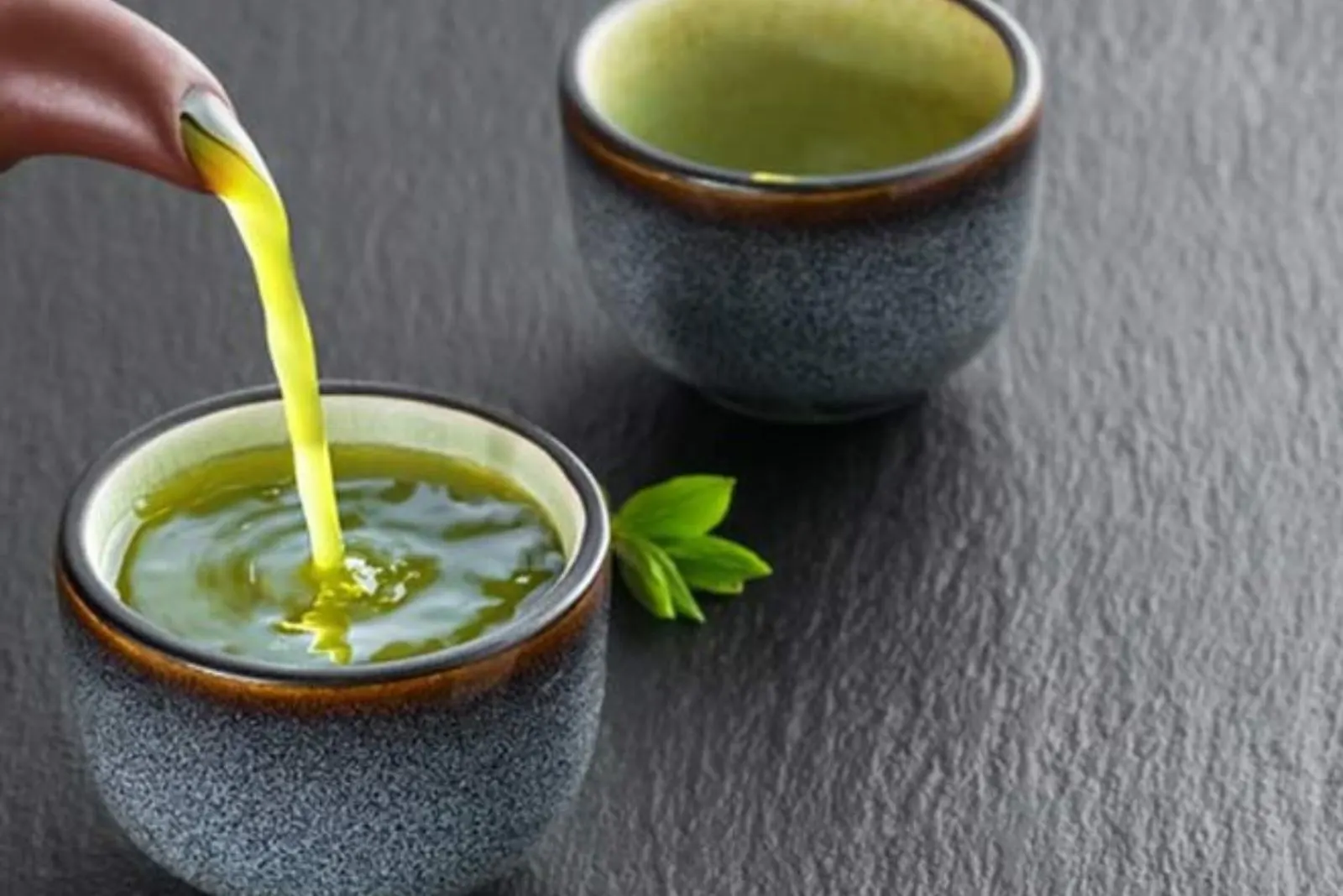With summer approaching and nighttime temperatures rising, it can be harder and harder to get refreshing sleep.
But did you know that herbs can be of great use in this situation? They won’t cool you down, but they’ll lift your bedroom decor and put you in the perfect frame of mind for relaxation.
There are many plants you can take to your room, but one that doesn’t get the credit it deserves is cilantro/coriander.
Let’s see how it works and how you can style it!
It’s Cilantro
Cilantro doesn’t necessarily promote sleep, but it has certain substances that can improve sleep quality. One study found that its essential oil can have a sedative effect on chicks when introduced to their bodies. (1)
But what does this study have to do with us?
Well, scientists propose that it’s because of linalool, a substance found in coriander essential oil with anti-anxiety and sedative properties. It reduces anxiety, and encourages calmness and relaxation to promote better sleep.
Additional research proved that exposure to coriander before bedtime can help us fall asleep faster, reduce waking up in the middle of the night, and improve overall sleep efficiency. (2)
A different study uncovered some other effects of coriander, such as muscle relaxing and sedative properties, all of which can potentially induce better sleep. (3)
However, you should take these studies with a pinch of salt as they’re conducted in an isolated environment. More research and evidence is needed to draw definite conclusions.
Additionally, some people may be allergic to coriander and get skin irritations, asthma, swelling of the mouth, etc. Therefore, be careful when introducing this plant to your bedroom and check whether you’re allergic beforehand.
How To Incorporate It Into Your Bedroom
Taking a cilantro plant into your room isn’t the only way you can use it to improve your sleep quality.
Essential oils, aromatic sachets, and even making tea out of it are all great ways to introduce coriander into your nighttime routine.
Use It In Other Forms
Using coriander essential oil is one of the simplest ways to try it out and see whether this plant helps you sleep.
I know it’s not exactly lavender, but its fragrance can still be soothing and create a relaxing aroma in your bedroom.
Place a tiny cilantro bouquet next to your bed or add a drop or two of coriander essential oil to the diffuser. Its relaxing scent will create a calming atmosphere in your room, promoting sleep.
Place It In Sachets
Small sachets will fit into any decor. Simply fill them with coriander seeds or crushed cilantro leaves, and you’re good to go.
Place the sachets under your pillow or on a nightstand to promote a sense of drowsiness and relax you as you fall asleep.
Brew It Into A Tea
My favorite use of coriander to promote sleep is making tea out of it.
Simply steep a teaspoon of dry leaves or seeds for a couple of minutes in boiling hot water, strain it, and savor it.
It might not have the best flavor, but it’ll calm you down and prepare you for a good night’s sleep, just like chamomile.
Use Whole Plants As Part Of Your Room Decor
To uplift your bedroom decor and create a relaxing atmosphere that’ll help you fall asleep, add cilantro or some other bedroom plant that improves sleep quality.
Place the cilantro on a sunny windowsill or nightstand, and this small touch of nature will bring peace and calm to your surroundings.
I hope this article was helpful!
Until next time!
References:
1. Gastón, M. S. et al. (2016). Sedative Effect of Central Administration of Coriandrum sativum Essential Oil and Its Major Component Linalool in Neonatal Chicks. Pharmaceutical Biology.
2. Zhang, W., Liu, H., Li, Z., & Liu, H. (2020). Synergistic Effects of Edible Plants with Light Environment on the Emotion and Sleep of Humans in Long-Duration Isolated Environment. Life Sciences in Space Research.3. Emamghoreishi, M., Khasaki, M., & Aazam, M. F. (2005). Coriandrum sativum: Evaluation of Its Anxiolytic Effect in the Elevated Plus-Maze. Journal of Ethnopharmacology.



